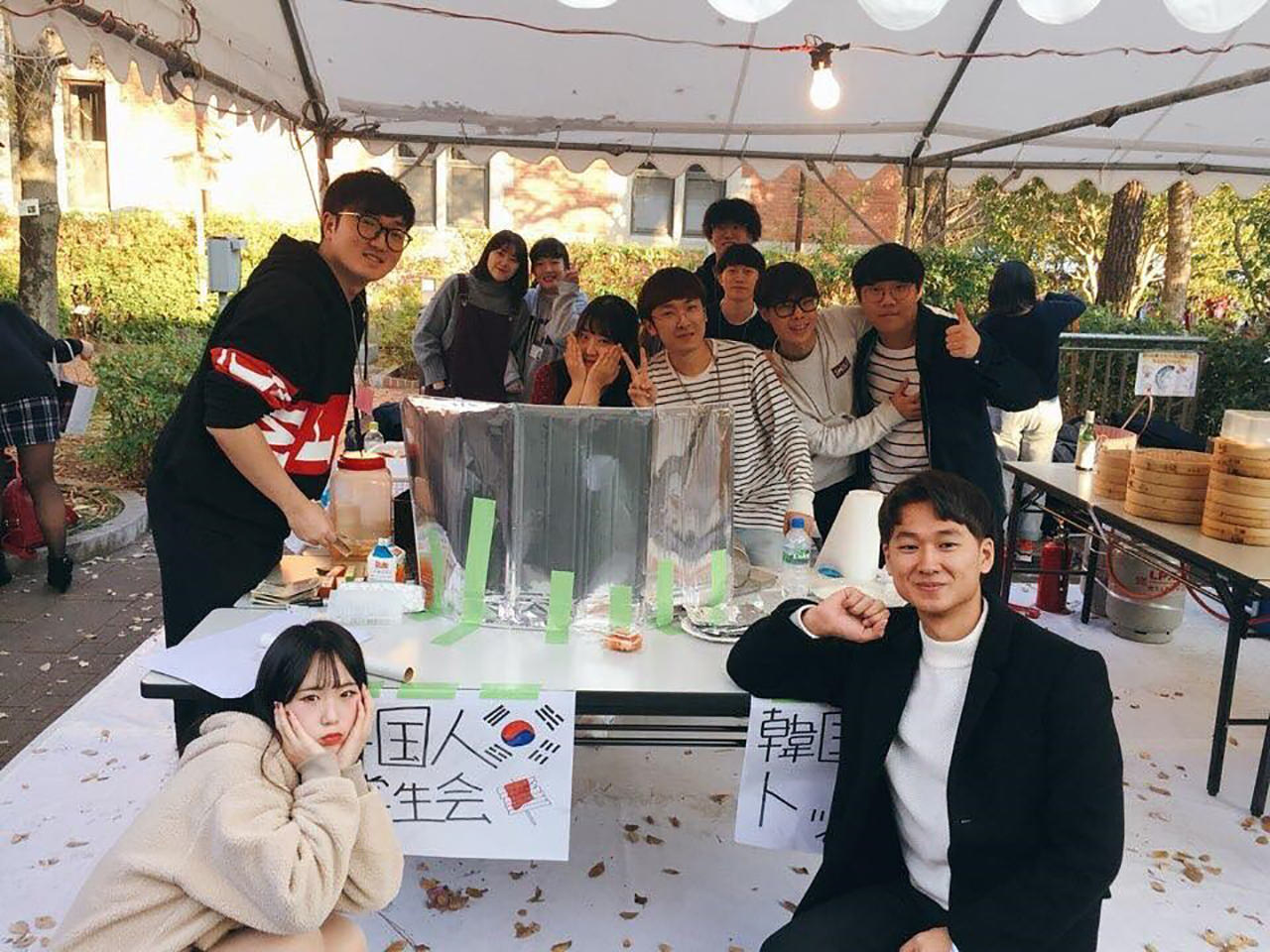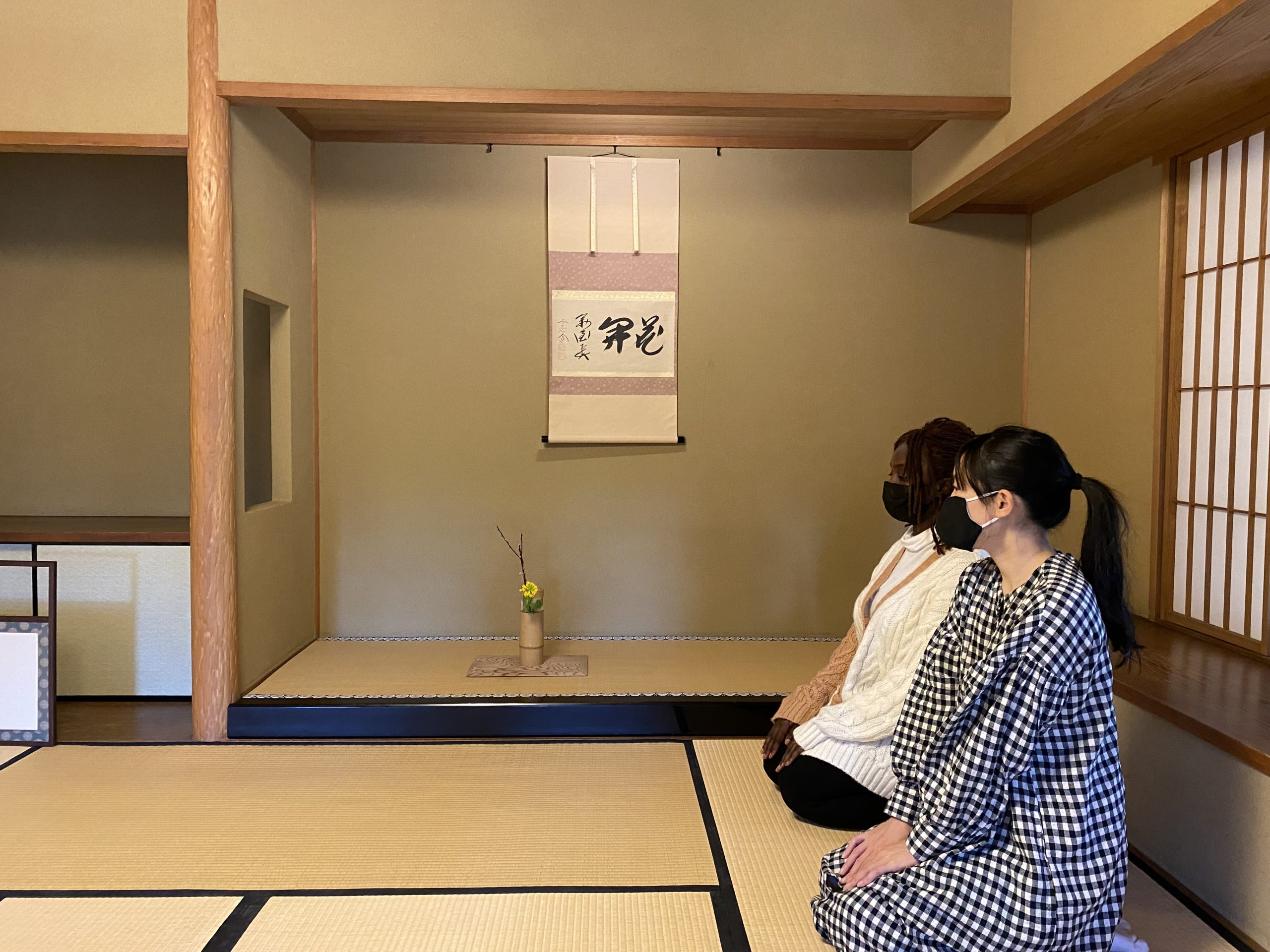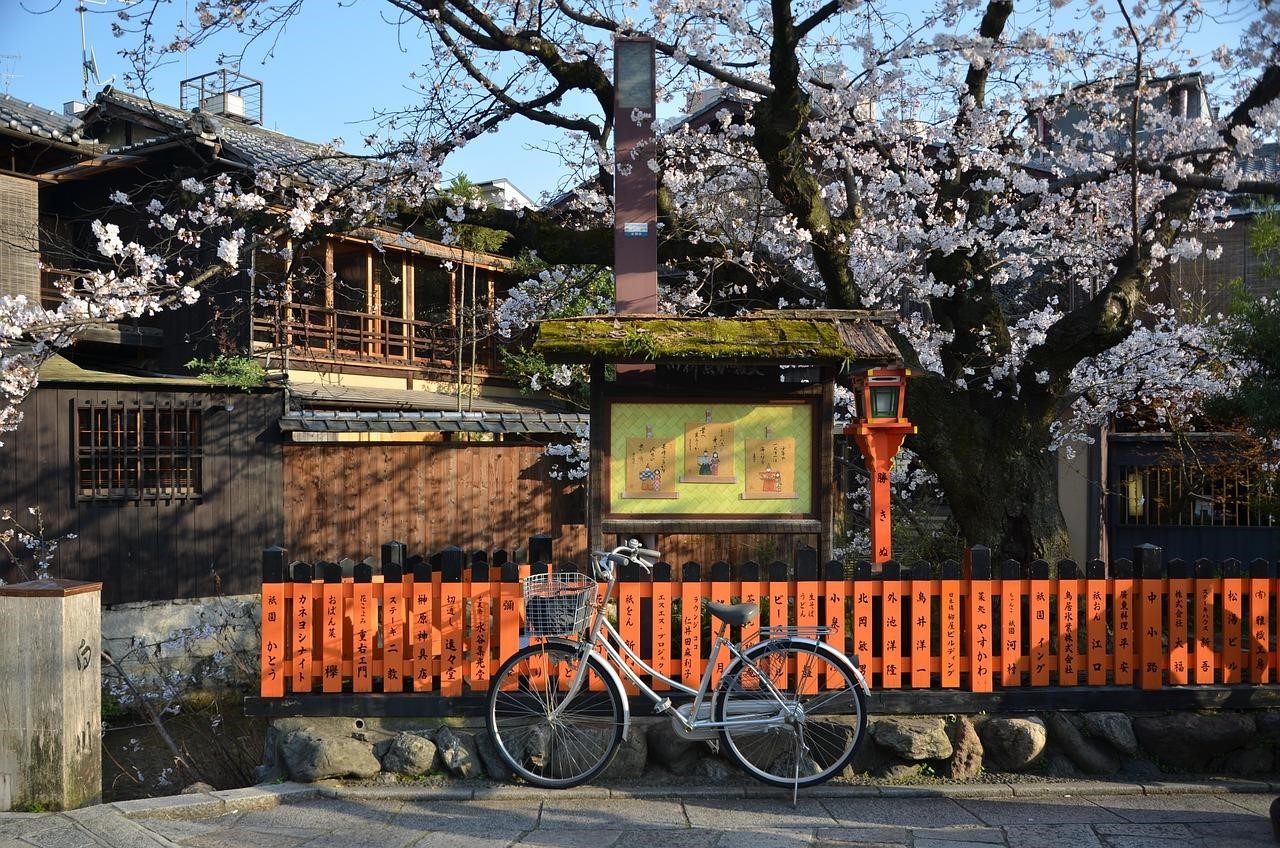University Graduates’ Roundtable: Studying Abroad in Kyoto [First Half]
2021.05.25
![University Graduates’ Roundtable: Studying Abroad in Kyoto [First Half]](https://static.studykyoto.jp/wp/wp-content/uploads/2021/05/198763be4c9f9b27c51b993b17069840-1024x683.jpg)
On February 2nd (Tuesday), soon-to-be graduates of Study Kyoto’s foreign student PR Team (Doshisha University’s Katrina from the U.S., Doshisha University’s Zheng from China, Kyoto University of the Arts’ Wen from China, and Kyoto University of the Arts’ Wang from China) met to reflect on their past four years as university students in Kyoto. Due to the COVID-19 outbreak, their last year of college did not go as smoothly as they had expected. We asked them to share their experiences in Kyoto as well as their expectations for the future.
During the first half of the roundtable, they each recalled memories from their university life in Kyoto – starting with their entrance exam experiences from four years ago.
About Four Years Ago…
Q) What do you remember around this time four years ago? Had you already known which school you were going to?
Zheng: I received my acceptance from Doshisha University around August 2016. After that, I was still attending a language school. But, there weren’t many things left to learn. So, since I was going to go to the department of economics, I decided to use my spare time to learn the basic knowledge of economics by myself.
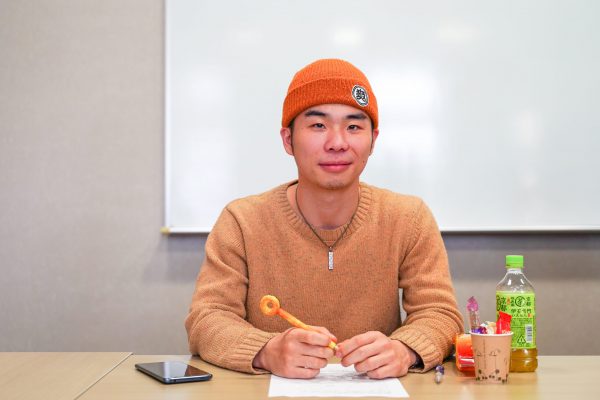
Wang: I had already been admitted to Kyoto University of the Arts at that time. So, I was preparing to move and enroll. Because my Japanese language school was also in Kyoto, I had been living in Kyoto since the very beginning of my study-in-Japan life.
Katrina: I had already been accepted to Doshisha University in October 2016. After that, since I had taken a leave of absence from my high school to prepare for the Japanese university entrance exams, I went back to school to catch up on the classes that I had missed. When I was in Kyoto in October, I managed to finish some stuff like looking for an apartment in Kyoto. So, I was living a normal American high school life at this point four years ago.
Wen: I had also been admitted to Kyoto University of the Arts around October 2016. Four years ago, I was studying at a language school in Tokyo and was also preparing to move to Kyoto.
Q) What was the most difficult part of taking the Japanese university entrance exam as a foreigner?
Zheng: I still remember clearly that I had trouble preparing personal statements for the universities that I applied for. In China, there are no such documents needed for choosing a school or major when entering university. But, to apply to schools in Japan, I had to revise the statements carefully to suit each school. I should really thank the teachers in my language school for helping me on that.
Katrina: I had trouble mailing documents from the U.S.. First of all, I had to use an expensive postal service to ensure the timeliness of my application materials. If they didn’t arrive on time or even didn’t arrive at all, I wouldn’t be able to stand on the starting line of the exam. So, I had no choice. Besides, when I sent the application documents from the U.S. to a university in Japan, I was worried about whether they would be delivered reliably. So, I went to the mailing company to check. However, the postal code of the mailing address given on the university admission guideline was not registered in the American postal system. Thus, the data did not appear, which made me very anxious. Regardless of the type of address, each university or company has its own dedicated postal code. Even if the address is inquired by the postal code, it will not be displayed in the overseas postal system because it is not logged into that system. For me, mailing the documents was more difficult than the exam itself because I applied for my college exams from abroad.
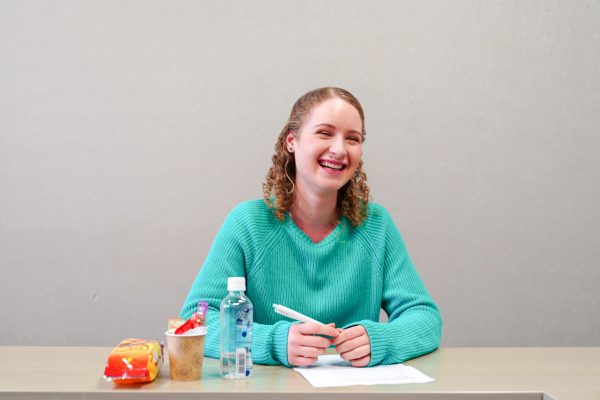
Wen: For me, the most difficult part was the interviewing process. Although I prepared a lot for questions that frequently appeared in interviews and practiced many times for the entrance examination interview, strangely, about ninety percent of the questions in the real test were unexpected (which annoyed me a lot) – especially the time I had an interview with about six professors. As soon as I walked into the room, I felt very nervous and my mind went blank. I completely forgot all the questions and answers I had prepared for. I felt blue after the interview. However, because of this rock-bottom experience, I am not afraid of interviews anymore. So, if I think about it in a positive way, it was somehow a good experience.
Wang: I wanted to go to an art university in Kyoto. So, I initially chose to study at a language school in Kyoto. And, studying in Kyoto where my dream university was located surely made it easier for me to get the information I needed to prepare for the entrance exam. Besides studying in a language school, I also attended a cram school for art. Since the cram school was also in Kyoto, I could get detailed advice on entrance exams and learn interview strategies. In my opinion, it was a big plus to start studying near my target school. In the AO entrance exam of art, painting skills are very important. However, I was an art student in high school in China, so I did not encounter great difficulties.
University Life in Kyoto
Q) Do you remember a time from when you first came to Kyoto to live and go to university here for 4 years?
Wen: My memories from the beginning of my life here in Kyoto were actually terrible. I moved into my new place without a prior visit. So, when I got there, I was shocked to find no amenities around. I had thought the location would be very convenient because the station was only 2 minutes away, but the station was in fact in a remote mountain. It even took me more than 10 minutes to get to the nearest convenience store on foot. Besides, it was cold when I moved here in March. Because there was no air conditioner in the bedroom, I turned on the one in the living room at night. But, the room would not get warm enough. I could do nothing about it, so I used the gas stove to boil water and warmed myself by the fire. I can laugh about it now, but it is an interesting yet embarrassing memory (laugh).
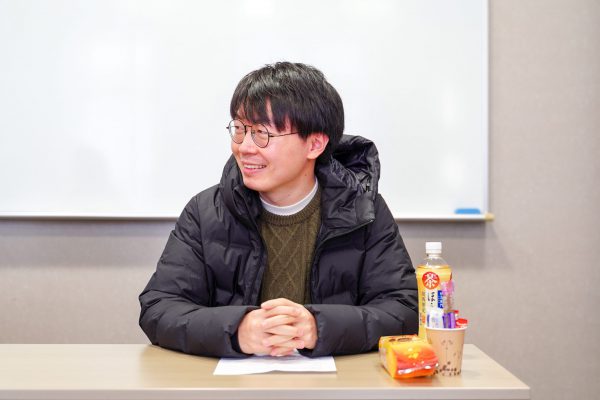
Katrina: I was underage at that time, so buying a mobile phone and signing up with a carrier was particularly troublesome. Since I needed a phone for life and some procedures here, I did not give up even though the store refused many times. Instead, I repeatedly negotiated with the store to find a way to buy a phone. In the end, I got a contract with a mobile carrier in one store and bought a mobile phone in another store. It took me about 3 days to prepare other related procedures.
Q) Have your impressions of Kyoto changed since living here? What kind of city is Kyoto to you now?
Wang: When deciding where to study abroad, my intention was to study traditional arts. I chose Kyoto because, in my mind, Kyoto was an artistic and historical city – a representative of Japanese culture. Kyoto is known as the “Student City” because there are many universities here. Kyoto has a rich history and culture. Even if you are a newcomer, you can easily experience the art of traditional culture. Even after living in Kyoto for five years, my impression of Kyoto has not changed.
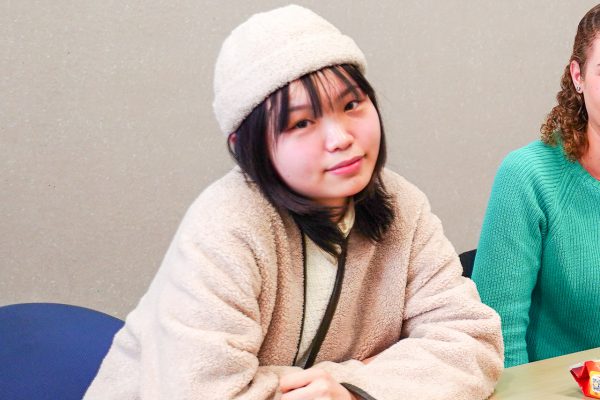
Zheng: Before I came to Kyoto, I was living near Shinjuku – a very urban part of Tokyo. I used to go everywhere by train every day. But, in Kyoto, the train service is not as convenient as it is in Tokyo. So, I took a bus for the first time since coming to Japan. At first, I was not used to taking the bus and was not familiar with the bus routes. So, I ended up getting on the wrong bus three times in a row (laugh). I had lots of trouble when taking the bus, but now I’m used to it. Also, I found out that with a bike I could get to every corner of Kyoto very easily. Compared to Tokyo, I don’t have to take a train or a bus in Kyoto. It’s much more convenient.
Q) What was the first difficulty you faced when starting your university life?
Wen: I found it difficult to communicate in Japanese – not only in daily life but also in professional terms. When I first got to school, I didn’t know anything about the terms related to filmmaking – such as “Long Shot” and “Long Take.” When I was a freshman, I made a short film for a class project. At that time, I didn’t have many friends and I wasn’t close to my team members. So, I was really worried about how to convey my ideas to the students in charge of shooting. When I couldn’t explain myself well in words, I drew pictures to help them understand. Through this experience, I realized that if I could not communicate well, I would not be able to make a film smoothly. So, I thought I should try to improve my communication skills along with my shooting skills and knowledge.
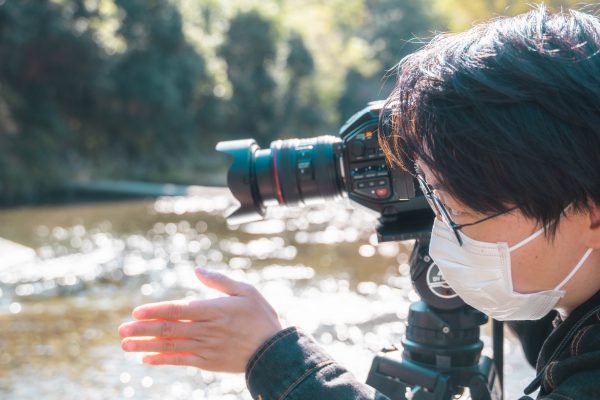
Zheng: I also faced difficulties in my university studies. I entered the economics department. But, since I studied liberal arts in high school, I hadn’t studied math very much. Besides, the math content we learn in high school in China is slightly different from what is taught in high school in Japan. In China, integral calculus is taught in college while in Japan it is taught in high school. From the start, classes and courses in the economics department were all based on “what a typical Japanese high school graduate would know.” So, it was hard for me to keep up, especially at the beginning.
Q) What was your happiest moment or thing that you worked very hard on in your university life?
Wang: That would be the time when I cooperated with my Japanese classmates to make a conceptual design of an APP in an information design class that I took. At that time, I wanted to try something new. So, I took the initiative to take charge of production and photography. During those three months, I did many photoshoots as well as location shootings. I experienced the whole process of coordinating a photoshoot – including taking video, choosing the locations, and arranging clothes for the models. In addition, the UI designing, video editing, and poster making were mainly done by me. Looking back on that project, I feel a great sense of accomplishment.
Katrina: As a university student, I got to experience a lot of things that I only could do as a student, which is a huge accomplishment for me. I wanted to make the most out of my four years in university, so I took a lot of elective courses and actively took part in university events and activities. I made full use of the university library and gym, joined various clubs, and made a lot of friends.
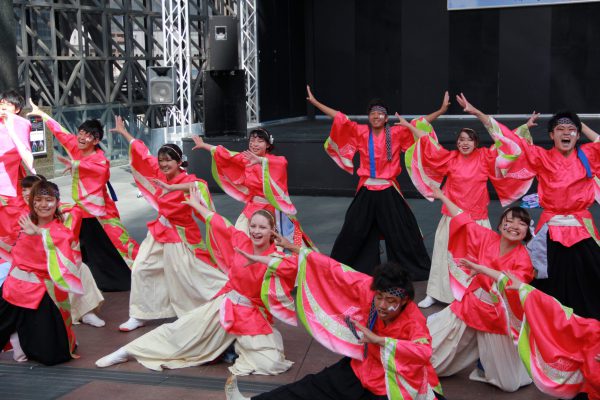
Besides, I participated in volunteer activities off-campus. Also, when I was free during school breaks, I sometimes worked in resort areas of other cities. Especially through such experiences outside of school, I could know and better understand Japanese society more deeply, which helped me broaden the topics that I can share and talk about with Japanese people. I think this will prove be very helpful for my future work in Japan. As a result, I had accumulated invaluable experience before the COVID-19 outbreak started. When I look back on it now, I think that I did a really good job of having a very meaningful time during the past four years of my university life.






